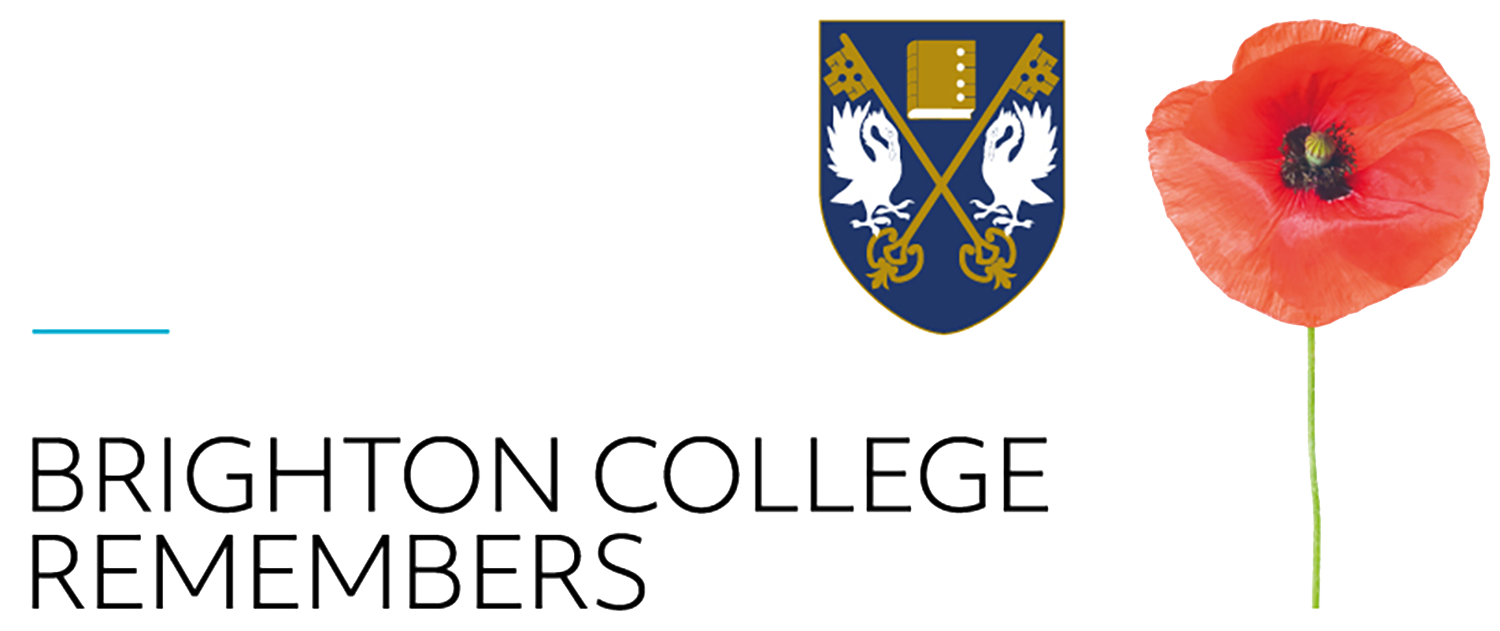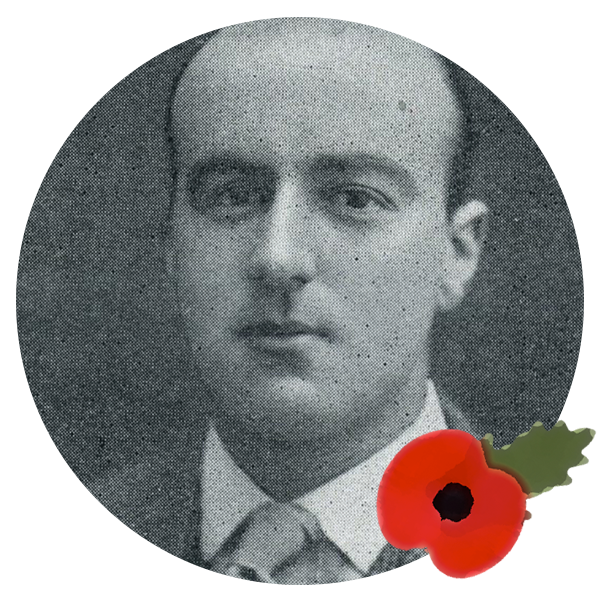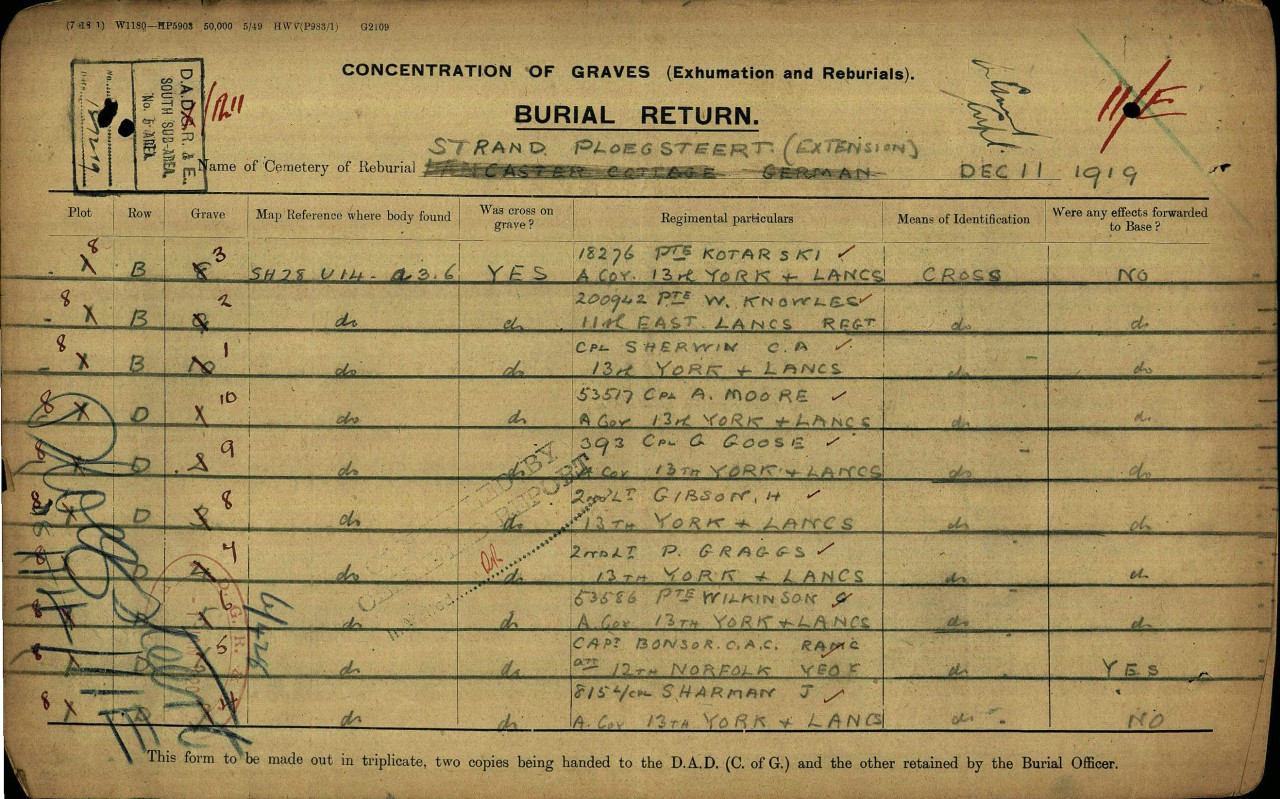Captain, Royal Army Medical Corp.
Born: February 3rd 1889
Died: September 29th 1918
Age at Death: 29
Killed in action, France, September 29th 1918
He was killed instantaneously by a shell while attending the wounded at Ploegsteert Wood , and is buried Strand Military cemetery, Belgium grave reference VIII D 5
Headstone engraving: FOR I WAS MY FATHER'S SON, TENDER AND AN ONLY ONE
Brighton College Registration details: Son of G. G. Bonser of Brighton.
A donation to the memorial statue has been made in honour of this solider by the Stokes Family.
"For I was my father's son, tender and an only one"
Geoffrey was born on 3rd February 1889 at Westfield House, Sutton and was the son of George Gershom Bonser and Dorothy A. Mary Bonser of 'Kirkstede' Church Street Sutton in Ashfield, Nottingham. He was married to Lillian Prime at Mansfield on 3rd July 1918 while he was on home leave from the front. .
Obituary, Brightonian XVI December, 1918
Killed in action, September, 1918.
Captain Geoffrey Alwyn Gershom Bonser, the only son of Mr. G.G. Bonser, J.P., killed in action on St. Michael's Day, was born February 3rd, 1889. He was educated at Brighton College and at the King's School, Worcester, where he held an honorary scholarship, subsequently proceeding to Cambridge where he graduated with honours in the Natural Sciences Tripos in 1910. He then entered St. Thomas's Hospital, and took the diplomas of M.R.C.S and L.R.C.P. in 1914. He was about to site for his third M.B., second part, at Cambridge, when he joined up, and was appointed to the Eastern General Hospital at Cambridge. He was gazetted Captain on April 25th, 1916, and proceeded to Egypt, where he served under General Allenby through Palestine. In May the regiment moved to France, and in July he had his first home leave, during which he was married. His Colonel wrote: - "He was killed instantaneously by a shell while attending the wounded... He is a great loss to the battalion, and from all those who know him I have heard nothing but words of praise." His tastes were literary and metaphysical, with a passionate love of music. During his time at St. Thomas's he edited the hospital gazette, and he was engaged in developing "a system of dualistic philosophy", as well as writing many essays and poems.
Geoffrey Alwyn Bonser (Hampden House 1898-1902)
Geoffrey Bonser was born on 3rd February 1889 in Ashfield, Nottinghamshire. He was the only son and second child of Geoffrey Bonser, who held various posts in local government such as Chairman of the School Board, and his wife Dorothy (nee Sims). It is unclear why the family came to Brighton from the Midlands and then returned again as Geoffrey Bonser held similar local government posts in both localities. After four years at the College Bonser gained an honorary scholarship to King’s School Worcester and then went up to St. John’s College Cambridge, graduating in Natural Sciences in 1910. He then went on to St. Thomas’s Hospital, London, qualifying as a surgeon in 1914. He then entered the RAMC being initially posted to the Eastern General Military Hospital, Cambridge where he received his commission on July 15th 1915.
On April 23rd 1916 he was attached to the Norfolk Regiment and promoted to Captain the same day. In 1917 he was transferred to Palestine from which he wrote home about the stress of treating the wounded following the Battle of Beersheba, the lack of sleep and the discomfort caused by the cold nights and baking hot days. However he also wrote of the thrill of visiting various sites mentioned in the Bible such as ‘the Valley of Aujon where, you will remember, Joshua made the moon stand still’ and, more contemporaneously, the ‘Jews wailing place’ in Jerusalem, even finding time to send some archaeological finds he had gathered. In summer 1918 he returned home on leave and married Lilian Prime on 3rd July before being posted, again with the Norfolk Regiment, to France. It was there that on September 29th 1918 he was killed, in the words of his Colonel:
‘…instantaneously by a shell while attending the wounded…He is a great loss to the battalion and from all those around him I have heard nothing but praise.’
His grave is in the Strand Military Cemetery, Ypres, Belgium.
Source: LEST WE FORGET PROJECT, Brighton College 2014/15
Also remembered on:
Sutton in Ashfield - Cemetery War Memorial as GAG Bonser
St Mary Magdalene Church Sutton in Ashfield - Geoffrey Bonser Tablet War Memorial as Geoffrey Alwyn Gershorn
St Mary Magdalene Church Sutton in Ashfield War Memorial as Geoffrey AG Bonser
Sutton in Ashfield Conservative Club War Memorial as Godfrey A Gersham Bonser Captain







